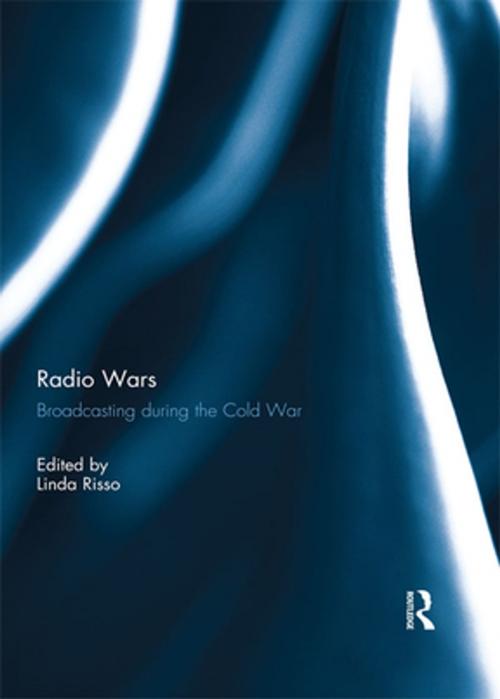| Author: | ISBN: | 9781317373209 | |
| Publisher: | Taylor and Francis | Publication: | October 2, 2017 |
| Imprint: | Routledge | Language: | English |
| Author: | |
| ISBN: | 9781317373209 |
| Publisher: | Taylor and Francis |
| Publication: | October 2, 2017 |
| Imprint: | Routledge |
| Language: | English |
During the Cold War, radio broadcasting played an important role in the ideological confrontation between East and West. As archival documents gathered in this volume reveal, radio broadcasting was among the most pressing concerns of contemporary information agencies. These broadcasts could penetrate the Iron Curtain and directly address the ‘enemy’. Radio was equally important in keeping sustained levels of support among the home public and the public of friendly nations. In the early Cold War in particular, listeners in the West had to be persuaded of the need for higher defence spending levels and a policy of containment. Later, even if other media – and in particular television – had become more important, radio continued to be used widely.
The chapters gathered here investigate both the institutional history of the radio broadcasting corporations in the East and in the West, and their relationship with other propaganda agencies of the time. They examine the ‘off-air’ politics of radio broadcasting, from the choice of theme to the selection of speakers, singers and music pieces. The key issue tackled by contributors is the problem of measuring the impact of, and qualifying the success of, information policies and propaganda programmes produced during the Cultural Cold War. This book was originally published as a special issue of Cold War History.
During the Cold War, radio broadcasting played an important role in the ideological confrontation between East and West. As archival documents gathered in this volume reveal, radio broadcasting was among the most pressing concerns of contemporary information agencies. These broadcasts could penetrate the Iron Curtain and directly address the ‘enemy’. Radio was equally important in keeping sustained levels of support among the home public and the public of friendly nations. In the early Cold War in particular, listeners in the West had to be persuaded of the need for higher defence spending levels and a policy of containment. Later, even if other media – and in particular television – had become more important, radio continued to be used widely.
The chapters gathered here investigate both the institutional history of the radio broadcasting corporations in the East and in the West, and their relationship with other propaganda agencies of the time. They examine the ‘off-air’ politics of radio broadcasting, from the choice of theme to the selection of speakers, singers and music pieces. The key issue tackled by contributors is the problem of measuring the impact of, and qualifying the success of, information policies and propaganda programmes produced during the Cultural Cold War. This book was originally published as a special issue of Cold War History.















